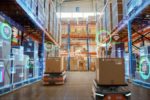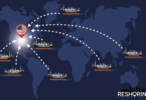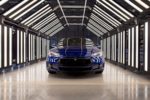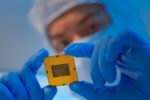
Home » Tesla to Build New Shanghai Factory for Megapack Battery
Tesla to Build New Shanghai Factory for Megapack Battery

A Tesla Inc. showroom in Shanghai, China, on Sunday, Oct. 16, 2022. Photo: Qilai Shen/Bloomberg
April 10, 2023
Tesla Inc. will build a new battery factory in Shanghai, increasing investment in China at a time of brewing tensions between Beijing and Washington.
Tesla will manufacture its Megapack large-scale energy-storage unit in the new facility, which adds to its factory for electric vehicles in Shanghai. The company led by Elon Musk, who is visiting China, made the announcement at a signing ceremony for the project in Shanghai April 9. Tom Zhu, Tesla’s senior vice president of automotive, and Shanghai government officials including vice mayor Wu Qing attended, with Tesla Vice President Tao Lin signing the contract.
Construction is scheduled to begin in the third quarter of 2023, and the plant will commence production in the second quarter of 2024, the company said in a statement.
Tesla’s deepening China investment comes shortly after France’s Airbus SE announced plans to double its production capacity in the country for one of its top-selling jets. The European plane maker will add a second final assembly line for A320 narrow bodies at its existing factory in Tianjin, under a deal signed by chief executive officer Guillaume Faury in Beijing on April 6.
The new manufacturing projects give a boost for Chinese industry, as other firms like Apple Inc. rethink production in the nation amid heightened tensions with the U.S. over everything from an alleged Chinese spy balloon being shot down over American skies to Beijing’s partnership with Russian President Vladimir Putin.
The Megapack is intended as a massive battery to help stabilize energy grids, with the company saying each unit can store enough energy to power an average of 3,600 homes for one hour. The new factory will initially produce 10,000 Megapacks every year, equal to around 40 GWh of energy storage, and the products will be sold worldwide.
China, home to rising global electric vehicle star BYD Co., is an extremely important market for Tesla. Its existing car factory on the outskirts of Shanghai, which the U.S. firm owns outright, produced almost 711,000 cars in 2022, or 52% of its worldwide output — even with production being disrupted by the China’s now-abandoned COVID Zero policy.
Authorities rolled out the red carpet to help Tesla set up its first plant outside the U.S. in early 2019, and Shanghai government officials assisted the company with resuming production in a timely manner after pandemic-related disruptions.
Musk’s time operating in China hasn’t been entirely smooth, however. An expansion of the Shanghai EV plant was delayed over data concerns about Tesla’s connections to Musk’s internet-from-space initiative Starlink, people familiar with the matter said earlier in 2023, days after angry Tesla owners swarmed showrooms in China to complain about missing out on another round of price cuts.
Tesla cars also were banned from Chinese military complexes and housing compounds in early 2021 over concerns about sensitive data being collected by cameras built into the vehicles.
Musk said on an earnings call in January 2023 that China is the most competitive auto market. He’s made similar comments before, including during an online forum in September 2021, when he said he had “a great deal of respect for the many Chinese automakers.”
RELATED CONTENT
RELATED VIDEOS
Subscribe to our Daily Newsletter!
Timely, incisive articles delivered directly to your inbox.
Popular Stories
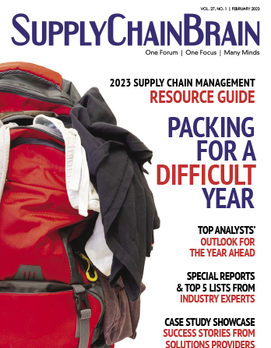
2023 Supply Chain Management Resource Guide: Packing for a Difficult Year
VIEW THE LATEST ISSUECase Studies
-
JLL Finds Perfect Warehouse Location, Leading to $15M Grant for Startup
-
Robots Speed Fulfillment to Help Apparel Company Scale for Growth
-
New Revenue for Cloud-Based TMS that Embeds Orderful’s Modern EDI Platform
-
Convenience Store Client Maximizes Profit and Improves Customer Service
-
A Digitally Native Footwear Brand Finds Rapid Fulfillment
